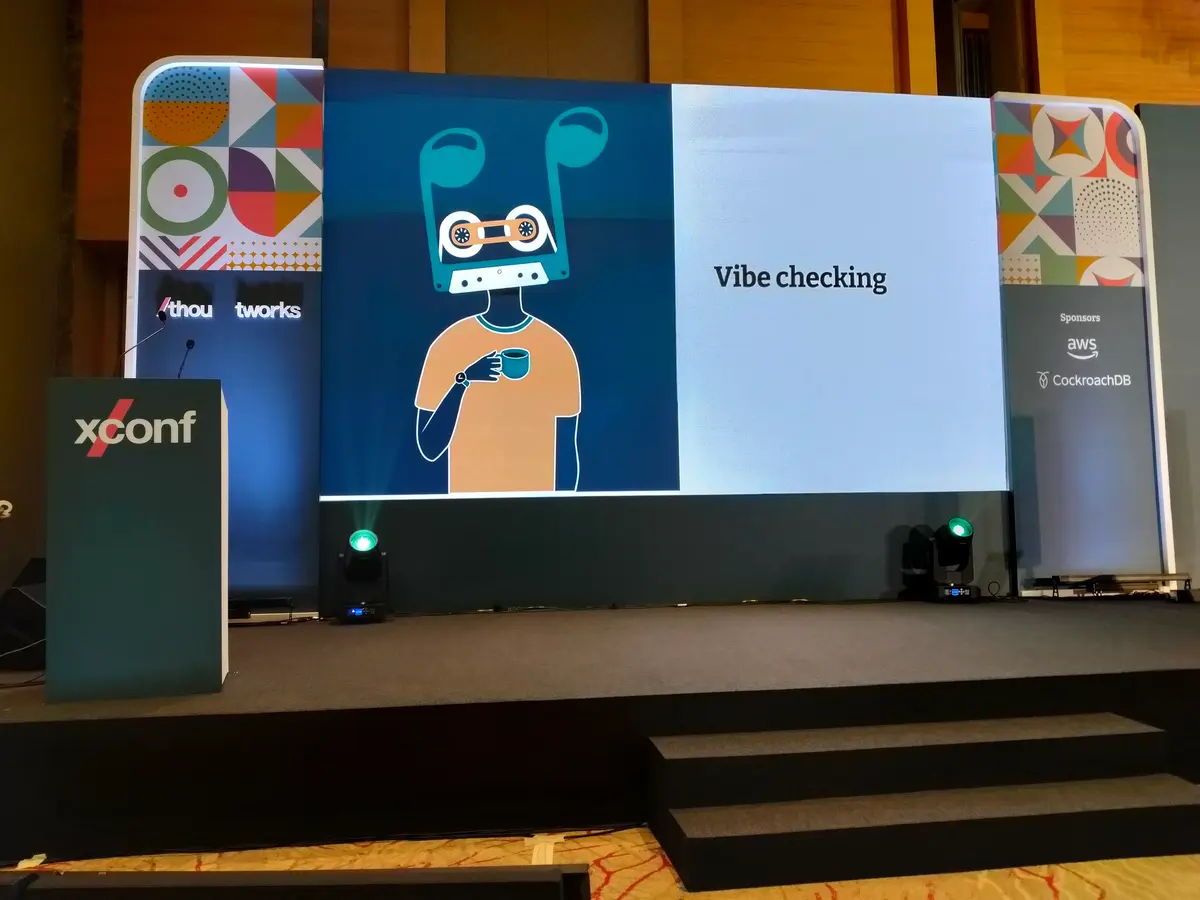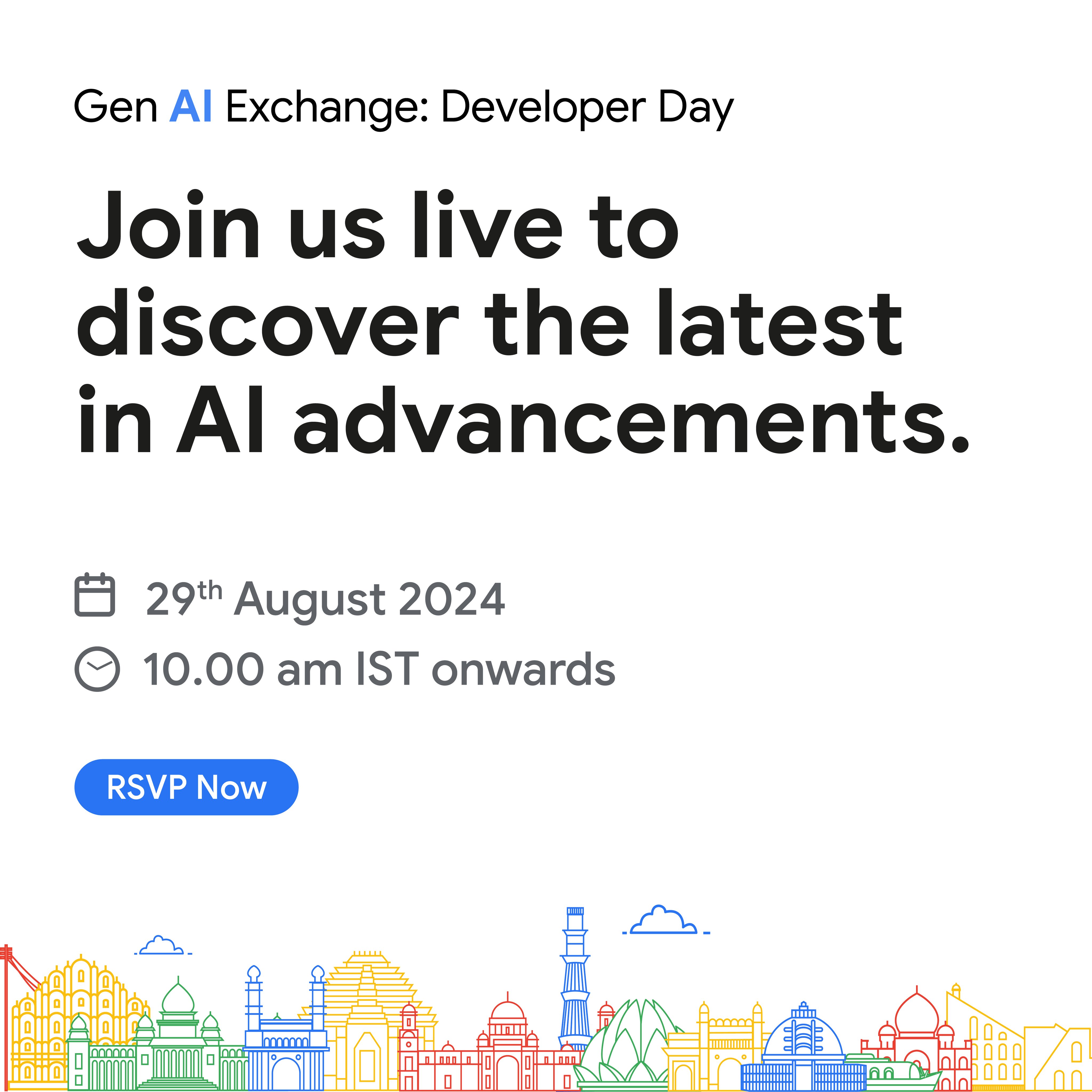10 takeaways from xconf 2024
XConf, the premier tech conference hosted by Thoughtworks, was held on November 22, 2024, at Marriott Whitefield, Bengaluru. The event was accessible through registration using a professional email at Thoughtworks XConf.

Event Highlights
Despite starting slightly behind schedule and facing time management challenges for speaker sessions, the event was vibrant and informative. Sponsored by AWS and CockroachDB, it featured five distinct booths:
- AWS
- CockroachDB
- Thoughtworks Careers
- Thoughtworks Immersive Experiences in the Metaverse
- Thoughtworks Publications
The event was structured into three segments:
- Common Sessions: Keynotes and talks by AWS and other industry leaders.
- Specialized Tracks: Focused sessions across specific themes.
- Workshops: Exclusive, registration-based, hands-on workshops.
The keynote speakers were particularly engaging, setting an inspiring tone for the day.
Themes for Specialized Tracks
- Machine Learning, Data, and AI
- Distributed Systems
- Emerging Technologies: Including SDV, XR, and Embedded Systems
A standout moment was a fascinating talk by the Director of the Indian Astrophysics Department, highlighting the role of technology in space exploration. Interestingly, Thoughtworks has collaborated with the department for their software needs.
Key Takeaways
Here are 10 notable insights from the conference:
-
Software Development as a Team Sport
- AI assistants should enhance the entire software development lifecycle rather than support isolated coding efforts.
-
From 10x Developers to 10x Teams
- The aim of AI is to empower teams, fostering collaborative processes and tools for impactful delivery.
-
AI Across the Software Development Lifecycle
- Beyond chatbots, AI is revolutionizing software processes, including research, planning, design, testing, deployment, and maintenance.
-
AI Artifacts for Enhanced Productivity
- Sharing generative AI (GenAI) prompts across teams can significantly boost efficiency, supported by tools like Haiven Team Assistant.
-
Observability 2.0
- Innovations like canonical log lines are scaling observability practices while reducing network loads.
-
GenAI for Legacy Code Understanding
- GenAI facilitates reverse engineering legacy code, enabling seamless tech migrations.
-
Rethinking Codebase Documentation with GenAI
- GenAI excels in generating documentation, capturing module links, and documenting architecture, epics, and stories.
-
AI Tools for Diverse Problem-Solving
- Utilize GenAI prompts for code understanding, RAG (Retrieval-Augmented Generation) for problem-solving, and Graph + RAG for capability analysis in codebases.
-
Local-First Software Development
- A paradigm emphasizing on-device computation for enhanced privacy, security, and real-time AI inferencing.
-
Evaluating LLM Performance
- Techniques like "eval" and "vibe checking" are emerging for benchmarking LLMs, with both self-assessment and human validation improving model efficiency.
Additional Perks
- Meet and interact with authors of Thoughtworks publications.
- Opportunities for networking, paired with great coffee and exclusive goodies.
- A focused event highlighting use cases in enterprise software.
In conclusion, XConf 2024 provided a dynamic platform for exploring cutting-edge tech trends, fostering meaningful collaborations, and envisioning the future of enterprise software development.
